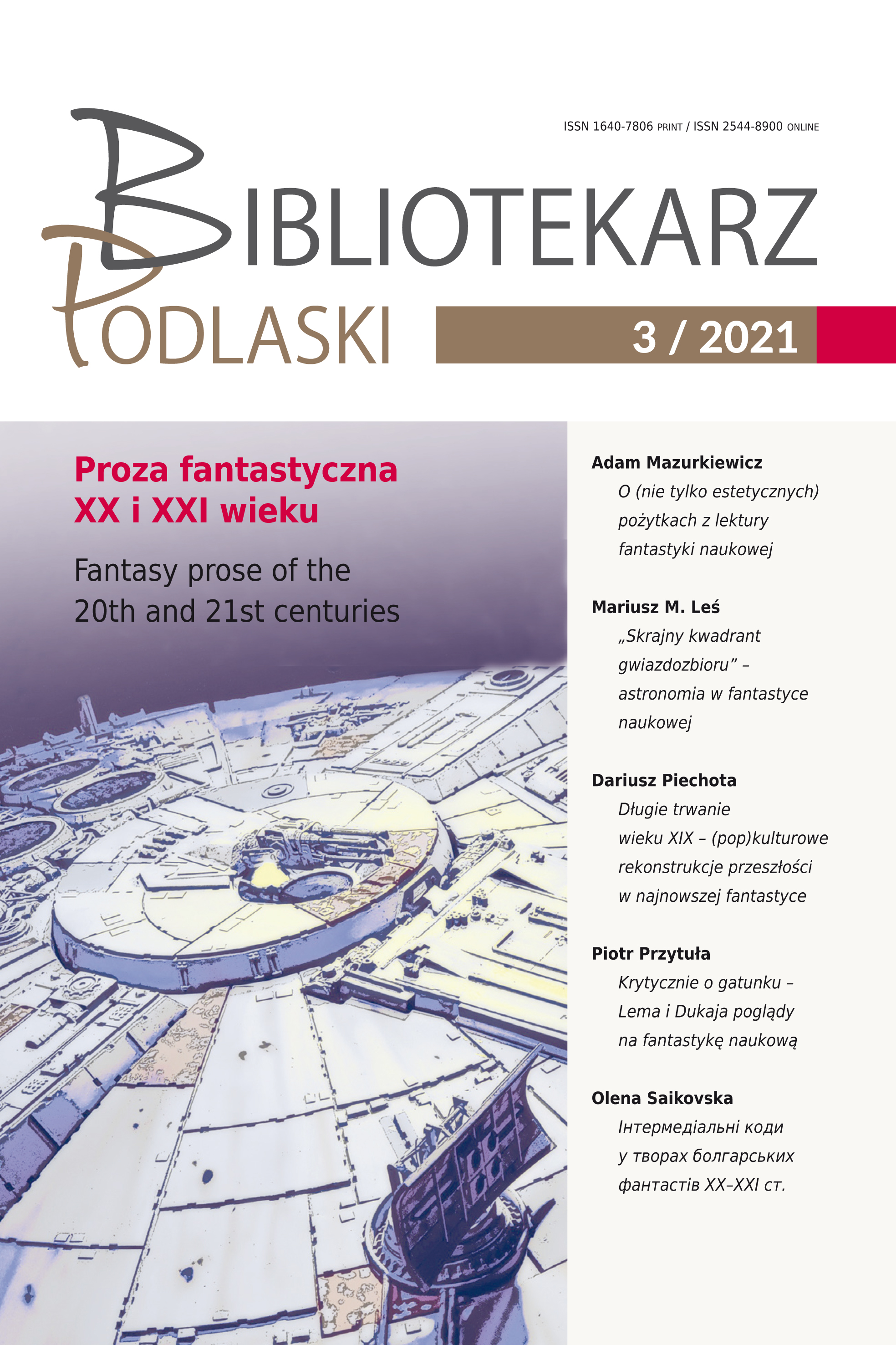Abstract
The article analyses epistles as a form of communication in the framework of Ukrainian publicism in the late 16th – early 17th century, which is characterized by the interaction of various polemical forms of expression and their influence on the recipient. It is noted that epistolary texts were among the most popular forms at that time, and their role was strengthened with the proclamation of the Union of Brest (1596). Being able to promptly convey information, along with the development of methods for active polemicization, they came to be established as a means of communication, so epistolary works provided the opportunity to express ideas and, through various forms, convey information about important social and political problems to the addressees (listeners, recipients). Due to this feature, they increased the author’s influence on the readers. Private correspondence, which had the status of political documents at that time, is distinguished as a special category as it mainly expressed the viewpoints of representatives of different religious denominations. The exchange of letters between the persons involved in the Brest Union intensified considerably. It is emphasized that because of certain genre features epistolary works of that time could be viewed as open letters/epistles. Such a genre form was also popular in Western European Protestant publicism of the 17th
century. The article considers the narrative and polemical aspects of epistolary texts, using examples from correspondence by Ipatii Potii, Kliryk Ostrozkyi and Ivan Vyshenskyi.
References
Bart R. Vvedeny`e v struktrnнj analy`z povestvovatel`nнx tekstov, [in:] Franczuzskaya semy`oty`ka: ot strukturaly`zma k poststrukturaly`zmu. Per. s fr. y` vstup. st. G.K.Kosy`kova, M.: Y`zdatel`skaya gruppa «Progress», 2000.
Baxty`n M. M. Estety`ka slovesnogo tvorchestva. M.: Y`skusstvo, 1979.
Vy`shens`ky`j I.. Tvory`, Vstupna st., upor. Yer`omina I.P. K.: Derzhavne vy`davny`cztvo xudozhn`oyi literatury`, 1959.
Yefremov S.O., Istoriya ukrayins`kogo py`s`menstva, K. Femina, 1995.
Lotman Yu.V., Vnutry` myslyashhy`x my`rov, Chelovek – Tekst – Semy`osfera – Y`story`ya. – M.: Yazyky` russkoj kul`tury, 1996, XIV.
Mamaly`g`a A., Lingvokomunikaty`vna problematy`ka tekstu i rozvy`tok suchasnoyi zhurnalisty`ky`, [in:] Rezhy`m dostupu: http://juoumlibuniv.ua/index.php?act=article@article+1045 [online 02.04.2021]
Makhnovets L., Satyra i humor ukrainskoi prozy XVI–XVII st., Naukova dumka, Kyyiv, 1964.
Ostrozkyi K., Otpys na lyst v boze velebnoho ottsa Ypatiia, “Ukrainska literatura XIV–XVI st.”, Naukova dumka, Kyyiv, 1988.
Poplavska N., Polemisty. Rytoryka. Perekonuvannia (Ukrainska polemichno-publitsystychna proza kintsia XVI – poch. XVII st.), Ternopil 2007.
Potii I., Antyryzys iiy Apolohyia protiv Khrystofora Filaleta, “Pamiatnyky polemycheskoi literatury. Russkaia Istoricheskaia Biblioteka”, SPb, 1903, issue 3.
Potii I.. Lyst do kniazia Kostiantyna Ostrozkoho vid 3 chervnia 1598 r., “Ukrainski humanisty epokhy Vidrodzhennia”. Antolohiia: u 2 chastynakh, Naukova dumka, Kyyiv 1995, Ch. 2.
Tkachuk R., Tvorchist mytropolyta Ipatiia Potiia ta polemichna literatura na mezhi KhVI – pochatku KhVII st. Dzherela. Rytoryka. Dialoh. Vydavnychyi dim Dmytra Buraho, Kyyiv 2011.
Vyshenskyi I., Tvory, Derzhavne vydavnytstvo khudozhnoi literatury, Kyyiv 1959.
Yaremenko P. K., Ukrainskyi pysmennyk–polemist Khrystofor Filalet i yoho “Apokrysys”, Lviv: Vyd-vo Lvivsk. un-tu, 1964.
Yefremov S.O., Istoriia ukrainskoho pysmenstva, Femina, Kyyiv 1995.
Articles published in the “gold open access” mode on the basis of a non-exclusive license agreement between the publisher and the author. Permitted use:
- the publication may be read and stored on any device,
- the publication may be cited (with obligatory reference to the author, the title of the text, as well as the full title, bibliographic address of the issue and page of the journal)
The editorial team of “Bibliotekarz Podlaski” implements an open access policy by publishing materials in the form of the so-called Gold Open Access. From volume 42 (issue 1/2019), the journal is available under the Creative Commons license (Attribution – ShareAlike: CC BY-SA).
The key declarations of the Open Access and Open Science movement, which we fully support, are available on the CEON Open Science website.
COPYRIGHT:
The editorial team of “Bibliotekarz Podlaski” implements an open access policy by publishing materials in the form of the so-called Gold Open Access. The journal is available under the Creative Commons license – Attribution – ShareAlike 4.0: International: CC BY-SA 4.0).
The key declarations of the Open Access and Open Science movement, which we fully support, are available on the CEON Open Science website.
“Bibliotekarz Podlaski” allows its readers to read, download, copy, distribute, print, search and link to the full content of articles. We enable full, immediate, unlimited (both in a territorial, temporal and technical sense) open access to all published content, in accordance with the principle that freely available research increases and accelerates the global development of science and the exchange of knowledge.
The editorial team of “Bibliotekarz Podlaski” encourages authors to place articles published in the journal in open repositories (after the review or the final version of the publisher), provided that a link to the journal’s website is provided.
The journal does not charge the authors any fees for accepting and publishing their texts.


